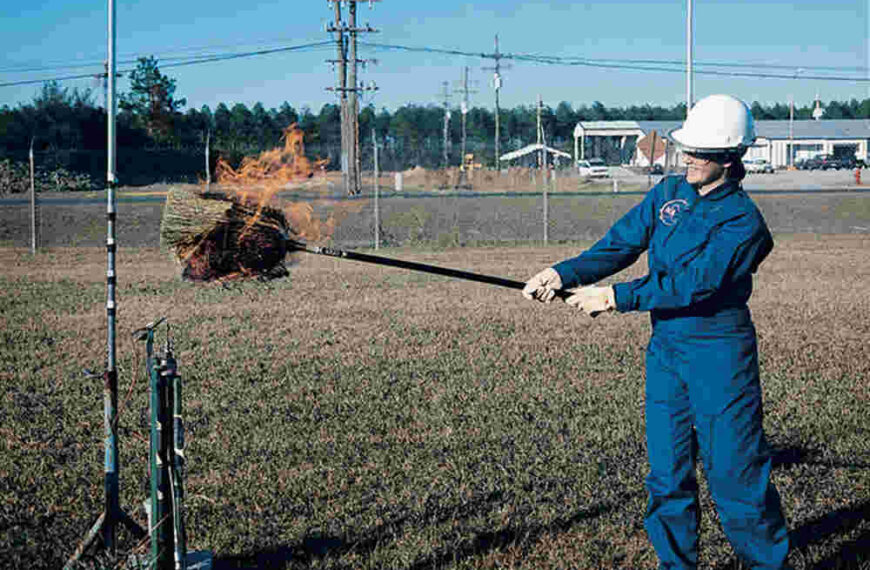Cross-browser compatibility is crucial in the dynamic world of web development and quality assurance. Its significance cannot be emphasized enough. In this area, Safari is essential to the Apple ecosystem and is especially useful for developers and quality assurance specialists who want to maximize user experiences and website speed. However, Safari’s Windows platforms present unique issues, particularly in automating tests to guarantee cross-browser and cross-OS interoperability.
Although Safari is known for its rendering solid engine and commitment to web standards, Apple no longer supports it, and it is becoming less and less available on Windows. The ecosystem is empty due to Safari for Windows being discontinued after version 5.1.7, which presents unique challenges for anyone in charge of automated tests on this browser environment.
In this blog, we’ll detail the difficulties in automating Safari for Windows tests. We will examine the constraints provided by the need for more recent upgrades for Safari, the absence of tools and frameworks that function well together, and the difficulties in accurately simulating real-world user experiences.
Challenges with Safari for Windows
By tackling these issues head-on and utilizing workable solutions, we can efficiently negotiate the difficulties of Safari for Windows. This will allow development and quality assurance teams to produce flawless online applications across various browsers and systems. In the search for the best web development and quality assurance procedures, let’s examine the intricacies of these problems and the approaches to solving them.
Unsupported Officially
A significant obstacle for developers and testers is the absence of official support for Safari for Windows, resulting from Apple’s decision to stop providing updates after version 5.1.7. Because Safari is stuck in this outdated version, it becomes increasingly incompatible with standards and contemporary web technologies, which are constantly changing. The lack of updates impairs the browser’s performance and security features, limiting its ability to render new web features appropriately.
This is a significant challenge for testers who want to simulate real-world scenarios accurately because they can’t evaluate how websites or web applications function on the newest versions of Safari or find any potential incompatibilities with the most recent standards. Thus, it becomes more difficult and time-consuming to guarantee cross-browser compatibility and provide smooth user experiences throughout Safari for Windows, necessitating inventive workarounds and strategies to provide thorough test coverage and validation.
Limited Tooling
A significant obstacle for developers and quality assurance specialists is the need for developer tools and plugins for test automation on Safari for Windows. In contrast to other browsers like Chrome and Firefox, Safari does not have a large ecosystem of tools made just for automating tests. Because of this lack, it is challenging to effectively write, debug, and run automated test scripts. Regarding generic automation frameworks, QA teams frequently use Selenium WebDriver, which may not be as compatible or supported with Safari for Windows as with other browsers.
Specialist tools and plugins are needed to accommodate Safari’s peculiar features and behaviors, making the testing process more difficult. As a result, browser-specific errors are more challenging to find and fix, decreasing testing efficiency. QA engineers are forced to use manual labor and workarounds.
Compatibility Issues
Compatibility problems with Safari for Windows pose a significant challenge for testers who want to guarantee consistent user experiences in various circumstances. Because Safari for Windows is outdated and unsupported, it often needs help rendering and executing current web apps made for modern browsers. When tests are run, this mismatch frequently leads to unexpected behaviors like rendering errors, functionality failures, or performance problems that might not fully represent how the application operates in real-world situations.
Because of this, QA teams have difficulty assessing real-world user experiences and locating serious errors or discrepancies unique to Safari for Windows.
To ensure that online applications work consistently across Safari and other popular browsers used by end users, more work and resources must be allocated to comprehensive cross-browser testing and resolution of compelling compatibility issues.
Stability and Performance
An important factor in stability and performance problems that affect the efficacy of test automation efforts is Safari’s datedness on Windows. Safari is stuck at version 5.1.7 on Windows and needs performance enhancements and bug fixes in recent browser releases. As a result, during test execution, testers frequently experience longer loading times, more crashes, and generally unpredictable performance. These problems disrupt testing and skew test findings, which makes it challenging to pinpoint major defects and performance bottlenecks unique to Safari for Windows.
QA teams have to spend more time and effort troubleshooting and resolving issues since they struggle to discern between abnormalities linked to the browser and actual program problems. To overcome these obstacles, testers must use different approaches, such as virtualizing environments or using cloud-based testing platforms to mimic Safari on macOS. These methods will provide a more realistic depiction of browser behavior and facilitate the use of more efficient test automation techniques.
Solutions for Effective Test Automation
Leverage Cloud-Based Services
Utilizing cloud-based testing platforms is a practical approach to address the difficulties with Safari testing on Windows. Within virtual environments, providers such as LambdaTest access actual macOS Safari instances.
This method eliminates the requirement for local Safari installations on Windows computers, guaranteeing accuracy and compatibility across various browsers and devices, free from the strain imposed by unsupported Safari versions.
Through these platforms, testers can efficiently run automation scripts on Safari and obtain insights into browser behaviors and user experiences in a regulated and scalable environment.
Using cloud-based services, QA teams may improve test coverage, expedite cross-browser testing, and effectively discover Safari-specific issues. This will ultimately enhance the quality and dependability of online applications across various platforms and environments. This method also makes it easier for team members to collaborate, irrespective of the operating system they use, which makes it easy to incorporate Safari testing into the more extensive QA process.
Use Alternative Tools
One smart way to get around the problems with Safari testing on Windows is to switch to alternate automation tools that work with Safari on macOS. For macOS environments, frameworks such as Selenium WebDriver and SafariDriver provide a potent solution designed specifically for automating the Safari browser.
Using SafariDriver, testers can circumvent the built-in constraints of Windows compatibility by creating and running automation scripts specifically meant to communicate with Safari. Compared to using Safari for Windows, this method gives QA teams access to Safari’s native features and behaviors, guaranteeing more accurate and dependable test results.
By combining Selenium WebDriver and SafariDriver into the testing process, testers can do thorough cross-browser testing across macOS systems and effectively handle issues particular to Safari. Additionally, following industry best practices optimizes test coverage. It guarantees consistent performance across Safari and other major browsers, enabling teams to use well-known tools and frameworks.
Implement Environment Virtualization
Using macOS in virtual machines to implement environment virtualization is a workable method to enable Safari testing on Windows PCs. Testers can create virtualized macOS environments directly on their Windows computers using tools like VMware or VirtualBox, which offer a controlled environment to emulate Safari testing scenarios.
QA teams may install macOS virtual machines to conduct thorough cross-browser testing, including Safari, in an environment resembling real-world user configurations. This method overcomes the limitations of Safari’s unavailability on Windows by allowing testers to assess web applications across Safari versions without requiring physical macOS hardware.
Additionally, virtualization improves the scalability and flexibility of testing endeavors by facilitating rapid provisioning of macOS instances for on-demand testing while preserving a uniform testing environment. Through environment virtualization, quality assurance specialists may effectively resolve compatibility problems with Safari and guarantee consistent performance in various browser contexts, improving the general caliber and dependability of web apps available to Safari users.
Prioritize Browser Compatibility Testing
Prioritizing browser compatibility testing is crucial for producing high-quality online apps that function dependably across many platforms and browsers, mainly when testing with Safari on real macOS computers. Before releasing the application to users, testers can proactively find and fix Safari-specific compatibility issues by prioritizing thorough cross-browser testing throughout the software development life cycle. As part of this proactive strategy, extensive testing is carried out on Safari, operating on macOS, utilizing real-world scenarios to imitate user experiences precisely.
QA teams can find bugs, rendering problems, or performance disparities unique to a browser in this way, which could impact the application’s usability and usefulness for Safari users. Early development of solutions for these compatibility problems reduces the possibility of serious issues arising after the product is released and guarantees a more seamless user experience on Safari and other popular browsers.
By making browser compatibility testing a top priority in the quality assurance process, teams can create web applications that are both robust and cross-compatible, meeting the needs and expectations of a wide range of user demographics.
Effortless Safari Browser Testing on Windows with LambdaTest
LambdaTest is an AI-powered test orchestration and execution platform that lets you run manual and automated tests at scale with more than 3000 real devices, browsers, and OS combinations.
With genuine macOS machines available in the cloud from LambdaTest, you can quickly run your Safari tests from any Windows computer, a game-changing option.
Benefits of LambdaTest for Safari Testing:
- Cross-Browser Compatibility: Make sure your online applications run directly from your Windows computer without a hitch on macOS Safari browsers
- Increased Productivity: Automate tests, get real-time test results, and use debugging tools to save time and effort.
- Better Quality Assurance: To provide a better user experience, find and address Safari-specific problems early in the development cycle.
This intuitive platform is designed to meet the demands of Windows users testing the Safari browser. By utilizing LambdaTest, you can accelerate test coverage, improve testing workflow efficiency, and produce high-caliber web apps that run smoothly in all popular browsers, including Safari.
Conclusion
Test automation with Safari on Windows has hurdles that can be overcome. Use cloud-based services like LambdaTest for accurate Safari testing on macOS. Use Selenium WebDriver with SafariDriver for macOS. Focus on browser compatibility testing early in development. Adopting flexible automation tactics ensures dependable web applications. Proactive testing and innovation are critical for flawless user experiences across browsers.
Also Read Interesting articles at Amazing Posting
















